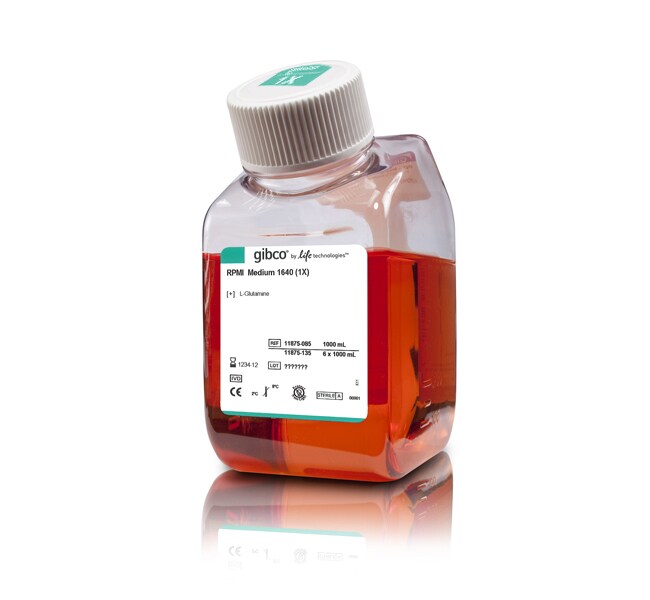Search Thermo Fisher Scientific

RPMI 1640 Medium
| Catalog Number | Quantity |
|---|---|
| 11875085 | 1000 mL |
| 11875101 | 100 mL |
| 11875093 | 500 mL |
RPMI 1640 Medium was originally developed to culture human leukemic cells in suspension and as a monolayer. Roswell Park Memorial Institute (RPMI) 1640 Medium has since been found suitable for a variety of mammalian cells, including HeLa, Jurkat, MCF-7, PC12, PBMC, astrocytes, and carcinomas. We offer a variety of RPMI 1640 Medium modifications for a range of cell culture applications. Find the right formulation using the media selector tool.
| With | Without |
| • L-glutamine | • HEPES |
| • Phenol Red |
The complete formulation is available.
Using RPMI
RPMI 1640 Medium is unique from other media because it contains the reducing agent glutathione and high concentrations of vitamins. RPMI 1640 Medium contains biotin, vitamin B12, and PABA, which are not found in Eagle's Minimal Essential Medium or Dulbecco's Modified Eagle Medium. In addition, the vitamins inositol and choline are present in very high concentrations. RPMI 1640 Medium contains no proteins, lipids, or growth factors. Therefore, RPMI 1640 Medium requires supplementation, commonly with 10% Fetal Bovine Serum (FBS). RPMI 1640 Medium uses a sodium bicarbonate buffer system (2.0 g/L), and therefore requires a 5–10% CO2 environment to maintain physiological pH.
Shipping conditions: Ambient
Shelf life: 12 months from date of manufacture